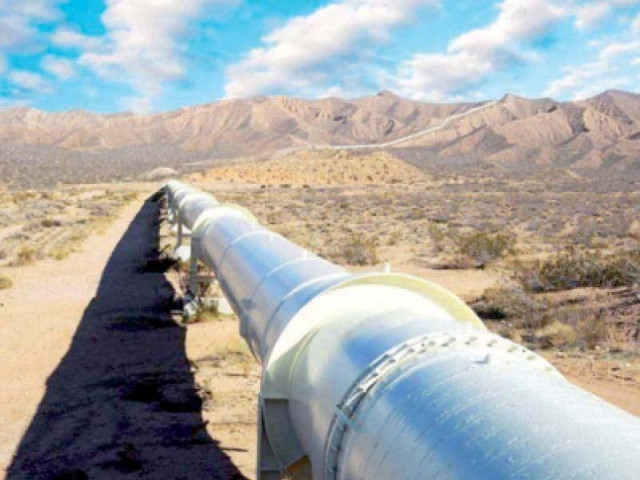Govt to mull GIDC recovery options
Business groups reluctant to deposit Rs453b in govt coffers following court orders

Stay orders granted by the lower courts against the decisions of the Supreme Court have enabled business tycoons, mainly the fertiliser industry, to stop payment of Rs453 billion worth of Gas Infrastructure Development Cess (GIDC) to the government.
The Prime Minister’s Office has now formed a ministerial committee to examine different options including a forensic audit of fertiliser manufacturers and other businesses to recover the GIDC, said officials. Currently, there are a total of 2,496 petitions in the courts, of which over 2,000 are in the Sindh High Court and 474 in the Lahore High Court.
In their arguments, two fertiliser manufacturers, having a fixed gas price contract for 10 years, claim that the discounted gas price of $0.70 per million British thermal units (mmbtu) offered to them under the Fertiliser Policy 2001 was inclusive of all taxes, duties, levies, fees and charges, whether local, federal or provincial, except for the General Sales Tax (GST) or a similar duty.
Other fertiliser units, industries and Compressed Natural Gas (CNG) filling stations have pled that they have not passed the GIDC on to end-consumer pricing and, therefore, are not liable to deposit the cess in line with Section 8(2) of the GIDC Act 2015. In their defence, power plants have argued that they have receivables that are to be paid by the government but clearance has been delayed due to circular debt.
In its verdict on, August 13, 2020, the Supreme Court ordered against the 50% relief on cess payment announced by the previous Pakistan Tehreek-e-Insaf (PTI) government, saying all sectors should pay the entire collection in installments to the government. “The total outstanding GIDC was estimated at Rs795 billion, of which Rs343 billion had been collected and deposited in government accounts,” an official said. The PTI administration had waived 50% of the GIDC that had been stuck since 2015 following the stay orders granted by high courts.
The Supreme Court decision stated that as all industrial and commercial entities, which consume gas for their business activities, pass on the burden to their customers, therefore, all arrears of cess that have not been recovered so far shall be recovered by the companies under the GIDC Act 2015 from their consumers. However, as a concession, the amount will be recovered in 24 equal monthly instalments, starting August 1, 2020, without the component of late payment surcharge. The late payment surcharge would only become payable for delays that may occur in the payment of any of the 24 instalments, read the court order.
It added that the federal government, within six-months, would take all steps to commence work on laying the NorthSouth gas pipeline and would start work on the TurkmenistanAfghanistan-Pakistan-India (Tapi) gas pipeline as soon as the pipeline reached Pakistani soil. The court also said the government will take measures to begin work on the Iran-Pakistan (IP) gas pipeline as soon as sanctions on Tehran cease to be an impediment to its groundwork.
In case work is not carried out on the North-South pipeline within the prescribed time and on laying any of the other two major pipelines (IP and Tapi), the purpose of levying the cess will be deemed to have been frustrated and the GIDC Act 2015 will become permanently “in-operational” and considered dead for all intents and purposes, the court said. While consumers filed review petitions in the Apex Court against the above decision, they were all dismissed in November 2020.
The high courts, however, have continued to maintain and grant stay orders on the recovery of GIDC arrears despite the Supreme Court’s decision. The main objective of imposing the GIDC on gas consumption was to raise funds for the development of infrastructure related to the transnational gas pipelines and liquefied natural gas (LNG) projects.


1733130350-0/Untitled-design-(76)1733130350-0-208x130.webp)
















COMMENTS
Comments are moderated and generally will be posted if they are on-topic and not abusive.
For more information, please see our Comments FAQ